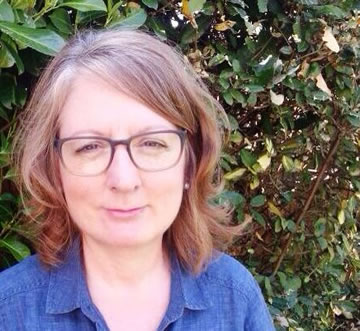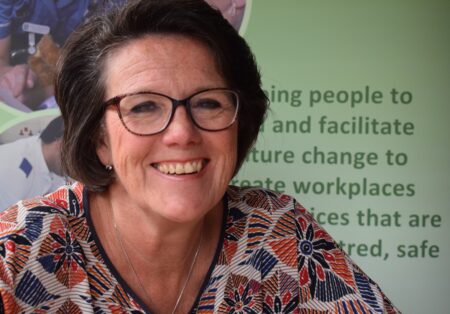Home News & Views Celebrating 70 Years of the NHS #NHS70
Celebrating 70 Years of the NHS #NHS70
Theresa Shaw, FoNS CEO

FoNS was delighted to support two (London and South regions) of the four regional events hosted by NHS England.
I attended the London Region event #NursingMidwiferyLondon with around 250 enthusiastic participants representing a wide range of nursing roles; there was a really positive, celebratory feel in the room and it was great that FoNS was part of it.
Professor Oliver Shanley, OBE, Regional Chief Nurse for London got the day off to great start by sharing his sense of pride at being a nurse and indeed coming from a family of nurses all dedicated to the NHS. NHS England’s Chief Nursing Officer, Professor Jane Cummings, revealed the list of 70 of the most influential nurses and midwives from 1948 to 2018, a list described as not simply recognising the ‘great and good’ but rather celebrating those who have influenced the evolution of nursing and healthcare. We were of course thrilled to see our very own Chairman, Professor Tony Butterworth, CBE in that list and hear what a really important contribution he had made from Jane Cummings. It was also great to see Sue Pembrey in the list, whose legacy is maintained through the annual Sue Pembrey Award for Clinical Nurse Leaders, along with colleagues from our IPDC partners, Professor Kim Manley, CBE and Professor Tanya McCance and finally, our Patron Baroness Mary Watkins.
Throughout the rest of the day, we heard from a range of nurses talking passionately about how they have made a significant difference to the care people using services receive. From the important role of learning disability nurses to the role of midwives in supporting women who have recently arrived in the country as refuges and asylum seekers, often traumatised and vulnerable. These examples of providing care to those who are vulnerable and sometimes marginalised by society is arguably the current representation of the reason the NHS was established in the first place: as a service which would end the terrible inequalities that existed in terms of access to healthcare. It is sadly the case that inequalities do still exist and nurses have a key role in trying to address them, both at the point of care and also in speaking out and advocating for those affected. It is also the case that nurses themselves have experienced the impact of inequalities and prejudice and I felt it was really positive that issues affecting those from, for example black and minority ethnics groups and the LBGT community, were highlighted during the day. Professor Caroline Alexander, Chief Nurse at Barts Healthcare NHS Trust, along her three colleagues, offered with some really positive examples of ways in which nurse leaders are working to break down barriers and create supportive working practices for all staff.

Jo Odell, FoNS Practice Development Facilitator and lead for the Inspire Improvement Programme and Sue Pembrey Award represented FoNS at the South Region Event in Reading #NursingMidwiferySouth. Reflecting on the day, Jo said: ‘I was heartened by seeing nurses who have now retired as well as nurses who are currently developing their skills as nurses. There were stories of inspiration, of how nurses are changing the lives of people now, but also stories of how nurses worked many years ago, and I reflected on how different nursing is now. Nurses now are more independent and autonomous, great leaders at all levels as well as being great advocates (as always) for the people they care for. The day was an opportunity to celebrate how far nursing has developed as a profession, as well as an opportunity to look forward, promote nursing in all fields of practice, as a modern career for younger people, both locally and globally with the #NursingNow campaign.’
I hope you are getting a sense that both the events, and I am sure the other two, were a genuine celebration of what is good in nursing and the NHS. However, as I reflected on the event and the celebration of the NHS at 70, a few thoughts have come to mind that I think we must address for the future if care across society is to be secured.
Firstly, whilst nurses are significant to the delivery of National Health Services, the NHS is reliant on wide range of staff (professional and support colleagues from executives to cleaners) who work tirelessly. In celebrating the NHS we must think about how we recognise and value all staff if we want the service to sustained for the future.
The second issue which stood out yesterday was that when we talk about the NHS, it still comes across as predominately a ‘illness services’ rather than a health service. Raising the profile of public health and prevention is essential to increasing the health and wellbeing of the population and to reducing demand on medical and care services.
The final area that must be addressed for the future is social care. Despite the espoused principle of integration, it is still the case that social care is overstretched and underfunded. The lack of support for social care has again recently been highlighted by the announcement of new monies for the NHS without any recognition that social care services are central to actual care provision and essential for the sustainable future of the NHS. Staff working in social care work tirelessly, just as they do in the NHS, but they are often overlooked and perceived to be in some way second rate. Social Care and the National Health Service must stand together as equal partners and be funded and valued for their central place in our society.
Comments are closed.

